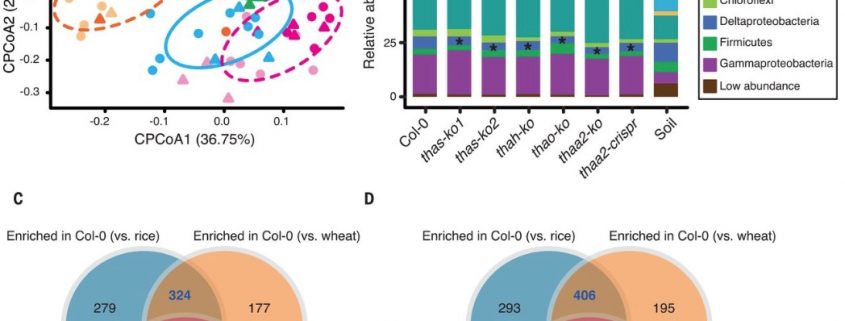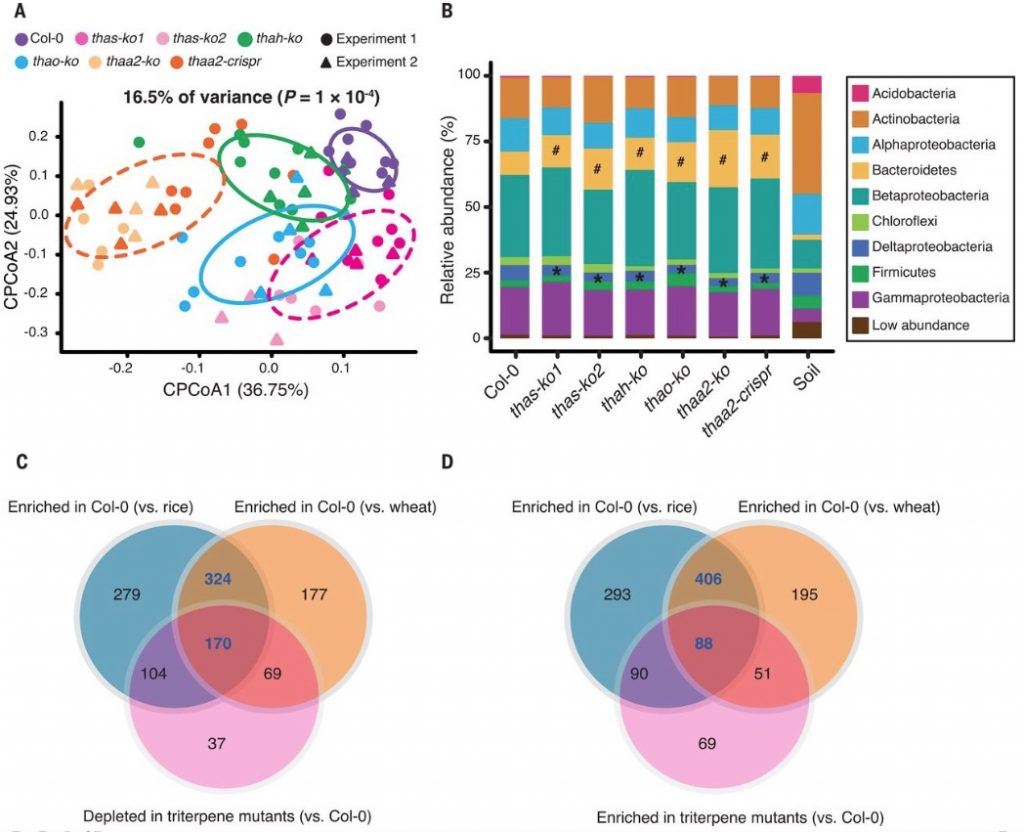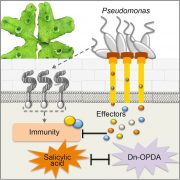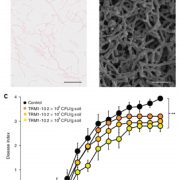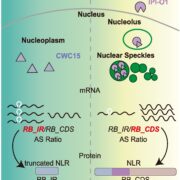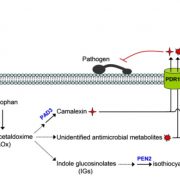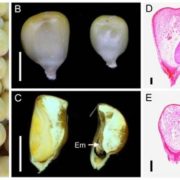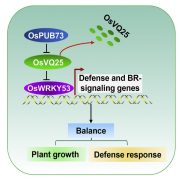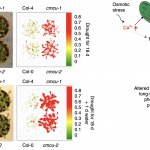A specialized metabolic network selectively modulates Arabidopsis root microbiota (Science)
Plants have evolved to adapt to varied environmental niches. The ability to produce specialized metabolites is one of the evolved characteristics which help plants to thrive through varied biotic and abiotic conditions. Plant-associated microbes are always known to have a drastic impact on plant growth and fitness. Although, the knowledge about the factors responsible for defining microbiome by the plant is elusive. In a recently published research article by Huang et al., has shown the plant produced specialized metabolites such as triterpenes has a strong effect on deciding the root associated microbiome. Triterpenes are specifically known for their role in plant defense and signaling. In the present research article, they have identified and filled the gaps in biosynthesis pathways of different types of triterpenes, derived from thalianol and arabidiol gene clusters. Genes such as THAS, THAH, THAO, and THAA2 are involved in multiple pathways. The mutant lines of these genes showed to assemble different root microbiota as compared to the wild type. The disruption in the biosynthesis of triterpene metabolites cause the shifts in root-associated microbial community structure at taxa level. The authors have demonstrated by using the isolated microbial members, that the selective metabolites are used as a carbon source for growth. (Summarized by Mugdha Sabale) Science 10.1126/science.aau6389


